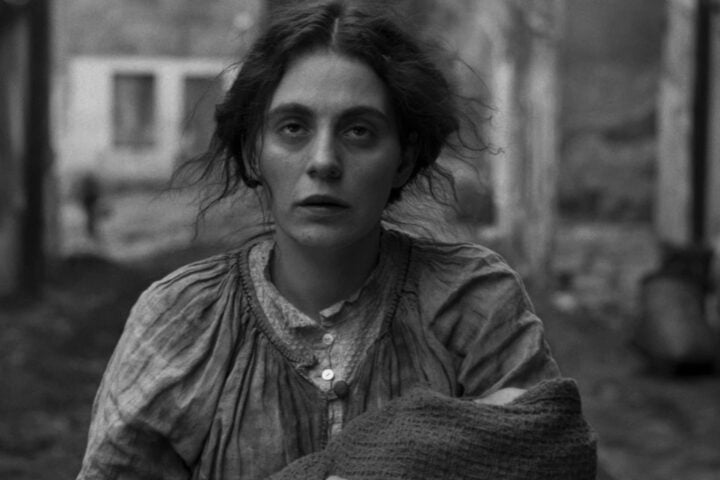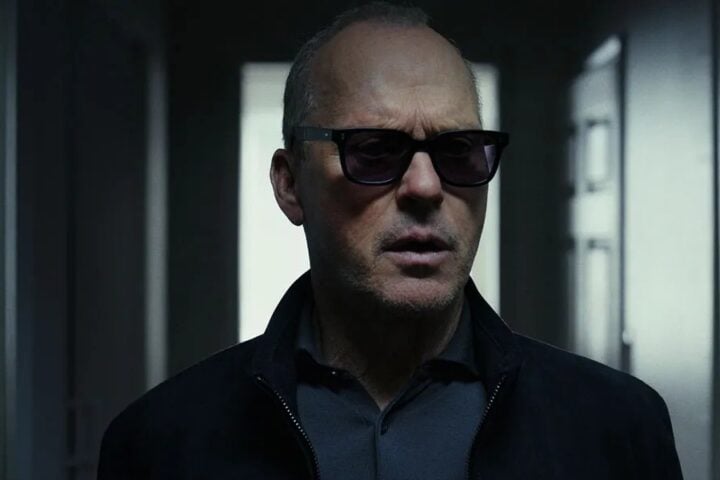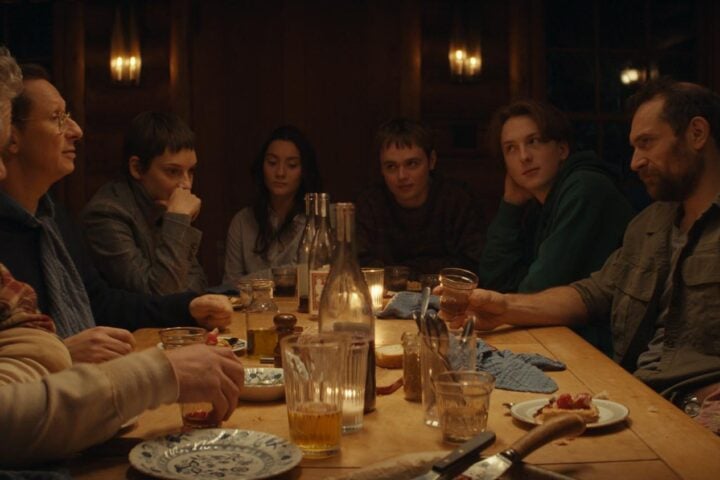What a difference a year makes. In the weeks after last year’s edition of the Polish Film Festival (known as the Festiwal Polskich Filmów Fabularnych in Polish, or FPFF), the country batted away a far-right insurgency. Where last year’s festival was conspicuous for its inclusion of films that seemed to exist above all else to express nationalistic pride, the 49th edition was a showcase of more liberal sentiments and artistic styles.
Amid a sea of rising fascism in Central and Eastern Europe, Poland’s relative holding down the fort of nominal liberalism has been surprising. It seemed to translate into a sunnier festival this year, which extended to the vibrant festival logo. Last year’s frequent rain and rippling winds were supplanted by weather more befitting the “Cannes of Poland,” as locals affectionately call the Gdynia-based festival. The festive mood was infectious, with staff frequently and excitedly discussing next year’s 50th jubilee, and the promise of a more progressive country.
That’s not to say that there weren’t films at this year’s festival that didn’t reflect how Poland is tangentially caught in the throes of international geopolitics. As something of a historical corrective to last year’s governmental shadow banning of Green Border, Agnieszka Holland’s thriller appeared in this year’s program, despite it already having opened theatrically around the world. The film would go on to win the Golden Lion for best film, as well as the audience award.
This year’s opening film, Damian Kocur’s Under the Volcano, is about a Ukrainian family caught on a compulsory extended vacation on the Spanish island of Tenerife after their flight back to Kyiv is canceled on the morning of Russia’s invasion of Ukraine. Homing in on an exceptionally strange and unique situation in which individuals are separated from home at a moment when being neither here nor there seems particularly appealing, the film recalls Ruben Östlund’s Force Majeure in the way it uses an avalanche, in this case figurative, to reveal the cracks in a family’s foundation. As Roma (Roman Lutskyi) and his second wife, Nastia (Anastasiia Karpenko), scramble to figure out how to afford living abroad and their marriage seems to disintegrate before our eyes, their daughter, Sofia (Sofia Berezowska, winner of the festival’s prize for best acting debut) and son, Fedir (Fedir Pugachov), are caught in the fray.
Kocur’s first feature, Bread and Salt, about the return of a prodigal son to his small-minded hometown, was similarly about the tension of being caught in a place of limbo, but Under the Volcano asks even more niche questions. What is it like to be turned from tourist to migrant in a matter of minutes? How do you deal with your burgeoning queerness, and how do you talk about it, when you have no language to use with either your family or the local populace?
Green Border and Under the Volcano were more than enough sympathetic portraiture to make up for the inclusion of Filip Hillesland and Maciej Ślesicki’s People, a Come and See riff that relentlessly and nauseatingly dramatizes the brutal subjugation of five female civilians caught in the gunfire at the start of the Ukraine war. Chockablock with tin-eared dialogue and almost indifferent to specificity, the film paints Russian soldiers as so cartoonishly evil that it almost makes one wish for them to have been given at least a modicum of humanity.
If People’s garish portrait of the horrors of war demanded a more nuanced political perspective, Mara Tamkovich’s feature debut, Under the Grey Sky, refreshingly keys us into the domino effect of effective political resistance. Loosely based on the true (and ongoing) story of the imprisonment of Belarussian journalist Alena Tsimashchuk (Aliaksandra Vaitsekhovich), who was sentenced to five years imprisonment in June 2024 on unknown charges, the film stirringly lays a case for the importance of the protections of journalists everywhere, a prescient and passionate plea considering Belarus’s penchant for jailing journalists.
Tamkovich’s film isn’t merely about Lena’s imprisonment but about the subsequent taking up of arms by her husband, Ilya (Valentin Novopolskij). The film works best when it’s keenly dramatizing the ripple effect of psychological torture at the hands of an increasingly repressive government, the gaslighting of people by governmental officials, the cowardice of lawyers, and the way all of that works to poison the domestic space. Through it all, Under the Grey Sky’s long patient takes uncomfortably situate us within the unspoken devastation between two people under constant surveillance and whose intimacy has been severely compromised.
Another film about the domestic space being compromised by external forces was the festival’s Silver Lion winner, The Girl with a Needle, Magnus von Horn’s idiosyncratic portrait of a woman’s descent into the pits of humanity in post-World War I Copenhagen. Dramatizing the desperate attempts of a factory worker, Karoline (Vic Carmen Sonne), in need of an abortion, the film sees her thrust into a world of horrors. After several attempts to rid herself of her deformed ex-husband, (Besir Zeciri), she takes up an ill-advised affair with her well-to-do boss (Joachim Fjelstrup), before finding something of a safe haven at a shady adoption agency with a candy store as a front. It’s a formally audacious film, boasting sharp-edged, German Expressionist-inspired production design and noir-ish chiaroscuro lighting, and it channels a social anxiety akin to that of Cristian Mungiu’s 4 Months, 3 Weeks and 2 Days.
The jury also awarded The Girl with a Needle with prizes for cinematography, score, scene design, and costumes, but the film is also a triumphant acting showcase. Trine Dyrholm was awarded best supporting actress for her performance as the alternately warm and bristly head of the adoption agency. Hers is a multilayered performance that pierces through an otherwise metallically cold nightmare. Von Horn plays with fire here in a way that constantly encourages a reevaluation of the film’s own arguments around abortion and adoption, but The Girl with a Needle is a truly tactile journey into the unceasing violence of a brutally patriarchal world.
On the margins of the festival outside the main competition were a trio of films that dispensed with heavy politics for more esoteric and philosophical questions around performance and artistry. Michał Grzybowski’s Seasons is a meta-theatrical behind-the-scenes screwball about Marcin (Łukasz Simlat), a star of a prominent state repertory troupe, and his rocky divorce with co-star Ola (Agnieszka Dulęba-Kasza), as presented through the lens of three different stage productions (Peter Pan, A Doll’s House, and A Midsummer Night’s Dream).
The film exhibits a profound understanding for the theatrical space, namely how silly and chaotic it can be. Not merely content to make a raucous comedy, Grzybowski also poignantly shows us how communication through performance can sometimes be more cogent than just speaking. Extremely sweet and vulnerable, Seasons frequently uses off-stage tensions to infuse the on-stage drama, and in a way that turns it into something of a comic spin on Drive My Car.
Loss of Balance portrays the behind-the-scenes drama of a graduate acting program’s thesis production. Writer-director Korek Bojanowski puts us in the shoes of Maja (Nel Kaczmarek) as she fights off competition for the role of Lady Macbeth that was promised to her by Jacek (Tomasz Schuchardt). The production restores Maja’s faith in acting, even as it puts her on a path toward exposing Jacek’s tyrannical ways. The film has a lot in common with Whiplash, but it never quite justifies the tension that it builds within its low-stakes bubble.
As another reflection on the act of performance, Night Silence is a surprisingly restrained and poignant effort from Bartosz M. Kowalski, whose prior work tends toward the schlocky. Co-written by last year’s Golden Lion winner Paweł Maślona (Kos), the film is a tender and quiet swansong for actor Maciej Damięcki. The actor’s passing (in November of last year) gives Night Silence a hauntingly metatheatrical charge, as he plays an aging actor who’s temporarily placed in an eerie retirement home, turning the film into a layered meditation on death and decay.
Considering Polish cinema’s relative lack of representation, it was refreshing that this year’s main competition included Woman of…, though Małgorzata Szumowska and Michał Englert’s film, like Green Border, was clearly on hand to grant absolution for festival programmers. A multi-decade portrait of Aniela (Małgorzata Hajewska-Krzysztofik), a trans woman dealing with the country’s draconian laws against gender-affirmation, the film is a well-intentioned but frustratingly misguided, self-congratulatory mishap. Though the filmmakers astutely and affectively keep us aware of just how backwards Polish laws are concerning LGBTQIA+ rights—Aniela is forced to divorce her wife (Joanna Kulig) and sue her parents just to get a legally recognized gender change—Woman of… feels behind the times in its portrayal of transness. The film at once requests the audience not to think of womanhood as merely having the “right” body parts but then includes scene after scene of people talking about Aniela’s genitalia. In doing so, it inadvertently suggests that gender comes down to what’s between the legs.
FPFF is additionally enticing as a chance to see Polish rarities. For the second year in a row, category-defiant novelist-filmmaker Tadeusz Konwicki was represented at the festival, this time with his first narrative, 1958’s The Last Day of Summer. This 66-minute production was shot with a skeleton crew of two, and the dizzying, philosophically charged tête-à-tête at its center recalls Alain Resnais’s Last Year at Marienbad as much as the work of Maya Deren. Two apparent strangers (Irena Laskowska and Jan Machulski) meet at the seeming end of humanity, on a beach, and struggle to fully understand each other as they ride the tumultuous waves of love and loss. It’s a majestically meditative and painfully melancholic the film that ponders the question: What if you were the last people alive but couldn’t communicate?
An unexpected mirror to Kocur’s opening film, The Last Day of Summer could be seen as a metonym for this year’s FPFF, which included several films about the difficulty of communication across the various lines that divide individuals. A festival of unexpected gifts, illogical frustrations, and wondrous discoveries, the Cannes of Poland beats a distinctive drum, both for its country’s cinematic output and for this region of Europe as a whole.
The Polish Film Festival ran from September 23—28.
Since 2001, we've brought you uncompromising, candid takes on the world of film, music, television, video games, theater, and more. Independently owned and operated publications like Slant have been hit hard in recent years, but we’re committed to keeping our content free and accessible—meaning no paywalls or fees.
If you like what we do, please consider subscribing to our Patreon or making a donation.






